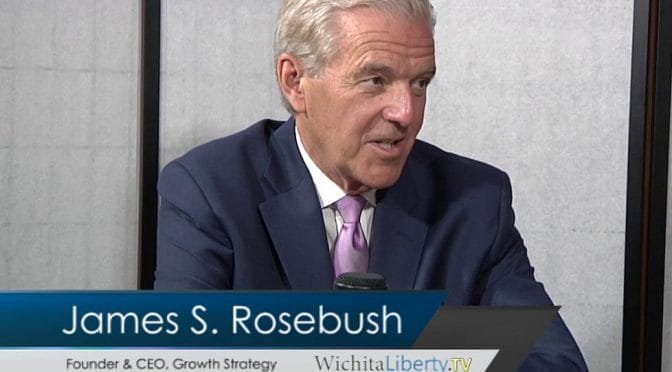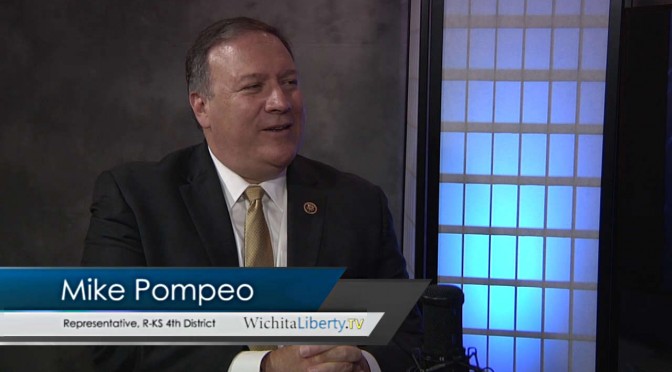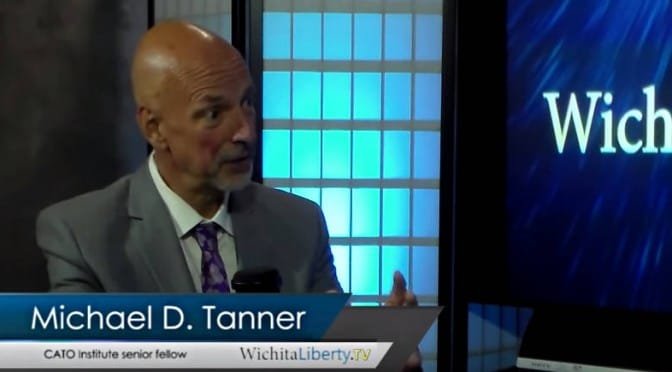Tag: United States Congress

From Pachyderm: Congressman Mike Pompeo
From the Wichita Pachyderm Club: Congressman Mike Pompeo delivered an update on the issues of the day and answered questions.

Roger Marshall campaign setting new standards
Attacks on Tim Huelskamp reveal the worst in political campaigning.

WichitaLiberty.TV: James Rosebush, author of ‘True Reagan’
James S. Rosebush worked in the White House as assistant to President Ronald Reagan. He’s written a book about Reagan titled “True Reagan: What Made Ronald Reagan Great and Why It Matters.”
Export-Import Bank threatens a revival
Business groups and government agencies usually favor Ex-Im. Free-market and capitalism advocacy groups are almost universally opposed.

WichitaLiberty.TV: Congressman Mike Pompeo
Congressman Mike Pompeo talks about passing legislation like the Safe and Accurate Food Labeling Act, the Iran nuclear deal and his role in discovering the secret side deals, and other topics.

WichitaLiberty.TV: Michael Tanner of Cato Institute on deficits, debt, and entitlements
In this episode of WichitaLiberty.TV: Michael Tanner of the Cato Institute talks about his new book “Going for Broke: Deficits, Debt, and the Entitlement Crisis.” Episode 90, broadcast August 2, 2015.






